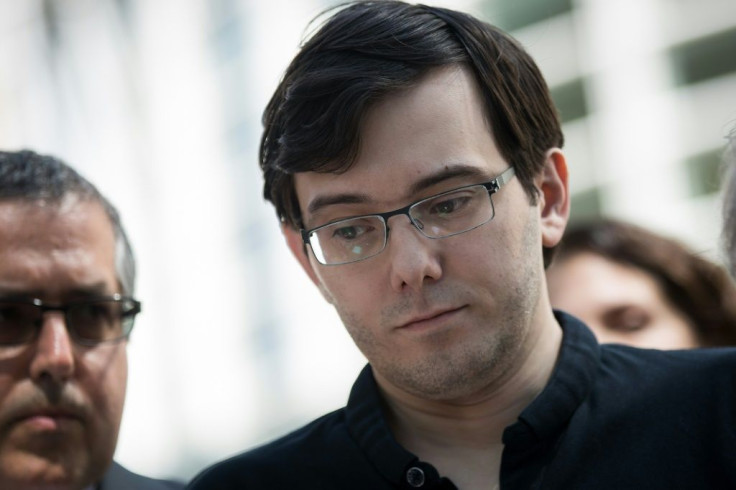Pharma Boy Martin Shkreli Can't Leave Prison Just Because Of COVID-19 Pandemic, Judge Rules
KEY POINTS
- Infamous "pharma bro" Martin Shkreli has been denied release
- He had argued that his mental health had rendered him vulnerable to COVID-19
- The judge noted that a recent exam had found him stable
“Pharma bro” Martin Shkreli has failed in his bid to be released from prison due to the COVID-19 pandemic. Shkreli has made other arguments, all equally fruitless, that he should be spared the seven-year punishment for defrauding investors in 2017.
He’s known for hiking the price of drugs used by some AIDS, malaria and cancer patients from $13 to $750 per pill. Shkreli also attacked critics on social media, publicly relished the lavish lifestyle he funded by hiking drug prices and offered a bounty for Hillary Clinton’s hair.
Shkreli was ordered to pay over $7 million for lying about his hedge fund performance, withdrawing more money than he was allowed from said funds, and fraudulently concealing his involvement in the drug company Retrophin.
Shkreli hasn’t been content to simply sit in Allenwood, Pennsylvania’s low-security prison until 2023. His most recent argument for clemency is that mental health problems had compromised his immune system, making him vulnerable to COVID-19.
His prison, like many others, does have a problem with the virus. There have been 26 inmates and 14 staff members who have tested positive. His alleged mental health problems are less evident: While rejecting his latest bid, Judge Kiyo Matsumoto noted that a recent exam had found him to be stable.

Shkreli also said that COVID-19 lockdowns had stopped him from properly consulting with his legal counsel. Matsumoto countered with several phone and Zoom calls over an hour that Shkreli had had with his lawyers.
This isn’t even the first time that Shkreli had tried to use the COVID-19 pandemic to get out of prison. He’d earlier asked to be let out under supervision for three months so that he could use his experience as a “successful two-time biopharma entrepreneur” to develop a treatment for the disease.
Judge Matsumoto proved equally skeptical then, calling the argument that Shkreli could find what had “so far eluded the best medical and scientific minds in the world working around the clock” as nothing more than “delusional self-aggrandizing behavior.”
While many felons found mercy in Donald Trump's final batch of pardons, Shkreli did not make the list.





















